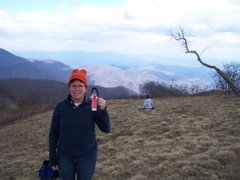Daniel Masi,
Upper Valley Waldorf School
Quechee, Vermont
TTEC Cohort 2015
July 15, 2015
Being a part of the TTEC program and working with other incredible teachers has been a really inspiring experience. After that weekend, I saw the world a little differently than I did when I arrived. I found myself looking at every tree, bird, insect, small plants, flowers, mosses and mushrooms with tremendous curiosity and desire to know what it was and what was its individual story and what lessons it had for me. I was observing the world with a new lens that had been formed by what I had learned that weekend.
As teacher, I believe there is so much to be learned by simply observing. Stopping to take notice of our world, the forest, the path, and all living creatures along the way. This experience made me think about goal oriented lessons versus process oriented lessons. For example, going on a class hike, one of the goals was to get to the top of the mountain and back. Other goals included using and expanding the capacity of observation. Of course, good lessons consider both, but the key is finding the sweet spot where children experience the intended goals and at the same time enjoy the process.
Taking my experience and applying it to the classroom, I was ready to bring it to my class of second graders. I knew we had a field trip planned for a hike at the end of the school year and this was my first opportunity to lay the foundation of the expectations and experiences that we will have on future hikes on the Appalachian Trail in future higher grades, as I follow the class through the grades until 8th grade.
With my class in second grade, they are still young and very much living into their environment. A lesson must just be a part the experience and not something separate. So I came up with a very simple lesson: Making observations and recording the observations with parent volunteers. We had several parents with clipboards and a spreadsheet of possible items to be observed and a blank spot for things not on the list. The idea was to make it simple to record and turn the children’s attention to the environment. As hiking can be a social time too, especially the last week of school, they needed this little assignment.
Children of various learning styles and temperaments react differently to an experience like a class hike. There are the goal oriented students who would run to the top of the Mountain trail without looking at anything, doing anything they could to be at the top, preferably first. Then you have the social children, who are talking and socializing as they hike. There is also the introspective observer, taking everything in and connecting with the environment. Lastly, there is the one student who wants to collect everything they see and take their time hiking up the mountain. They sometimes need a little prompting to keep them with the group.
This simple lesson brought something for each of these different children. The goal oriented student had a goal of finding and observing their environment. They seemed to want to find more than anyone else, even though it wasn’t a contest. The social child now had to turn their attention to the environment and observing, usually with others and talking about whatever they just found or how they have seen something like this before. The introspective child, taking it all in, now has to tell someone (a parent in this case) what they were observing. These children saw things that everyone else missed! The collecting child similarly found many interesting things and was usually at the end of the group needing a prompt to keep moving.
The hike was structured with parents in front, middle, and at the end. The students could walk, run, jump, etc… within the front and the end, as long as they stayed on the path. Parents marked the sheets with observations, by what each individual child observed. They could make simple line hash marks for each bird or insect or reptile or mammal a student pointed out to them. When we went back to the classroom after the hike we reviewed what had been observed by each child and tallied all the different observations and totaled the various observations.
This very simple lesson allowed the children to taken in their environment and experiences and share it and see how much they can see if they stop to look. Same with all the senses, taking the time to take it in and observe the world around them. I believe this is one of the foundation lessons to bring to the students at this young age. Using and expanding the capacity to observe will serve these students in grades to come, for example, in fourth grade when we are learning animals or fifth grade when we begin to study botany.
My hope is that I take my own feeling of curiosity and wanting to learn and observe my world and give my students experiences for them to find their own curiosity and desire to observe and learn from the world.
Attached, spreadsheet.


























